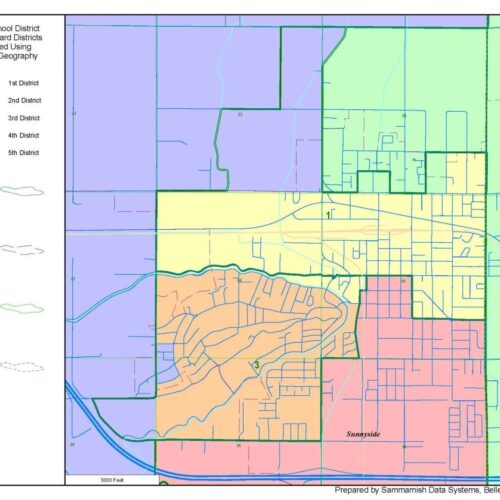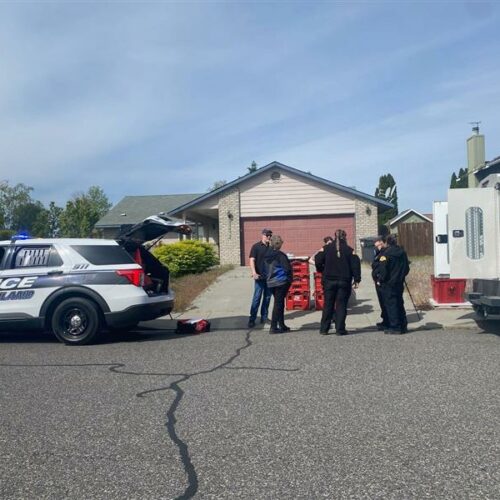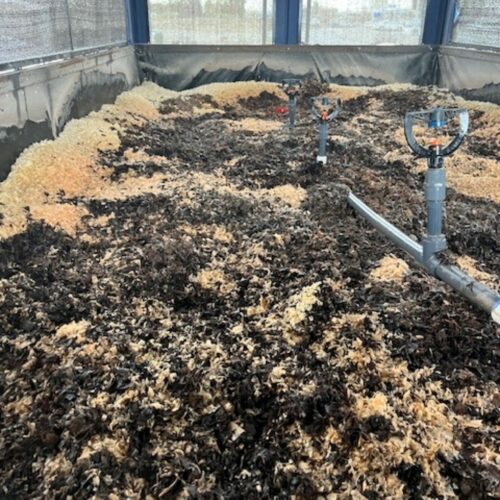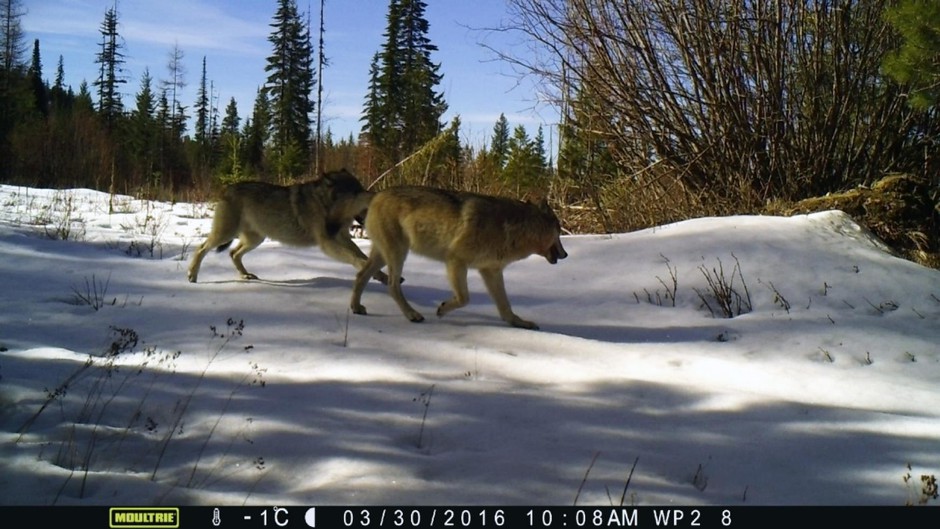
Washington Wildlife Officials Cancel Public Meetings On Wolves Under Threats Of Violence
Read On
Threats of violence have caused Washington officials to cancel a series of in-person informational wolf management meetings.
“This is a time of high tension on wolf management issues all-around,” said Julia Smith, Washington Department of Fish and Wildlife wolf coordinator. “Our own law enforcement staff recommended that we not have the meetings. We took that very seriously.”
Smith said she didn’t have details on exactly what threats were made. In a news release, department director Kelly Susewind said the tensions this summer were “on both sides of the issue.”
The 14 open house-style meetings were supposed to give people information on the state’s development of a post-recovery plan for wolves. They had been scheduled all around the state, from Spokane to Mount Vernon. Now, the information will be available online, including in three yet-to-be-scheduled webinars.
Smith said a post-recovery wolf plan could take up to three years to create. These meetings are the first step toward developing a draft plan.
Conservation Northwest spokesman Chase Gunnell said the advocacy group thought it was unfortunate that the meetings were canceled, noting that the threats of violence came from both sides of the issue.
“This is an issue that’s going to take several years to plan and discuss what the future for wolves in the state looks like, so it would have been good to have these meetings and have a respectful discussion amongst people on all sides,” he said.
Right now, wolves are protected by the federal endangered species list in the western two-thirds of Washington. They are on the state endangered species list in the eastern one-third of Washington, where most of the conflicts involving livestock happen.
Officials hope to have a new plan on the books when wolf population reaches the state’s recovery goals. That would happen when the state has documented 15 successful breeding pairs over three consecutive years or if there are 18 successful breeding pairs in one year. The pairs would have to be evenly distributed throughout three wolf management areas.
“We don’t know when the listing status of wolves will change. All that we know in this moment is that we see that wolves are recovering in the state of Washington. We see a growing wolf population. We see their distribution moving westward,” WDFW’s Julia Smith said.
Since 2008, the state’s wolf population has grown by around 28% each year. In the last population survey, the department documented 126 individual wolves, 27 packs and 15 successful breeding pairs.
The increasing number of wolves has continued to create conflict with livestock. Most recently, state officials lethally removed the Old Profanity Territory pack. The department also issued an order to remove members of the Togo pack, although no wolves have been killed yet. Several environmental groups were frustrated with the lethal removal orders.
“I think any wolf meeting, any time you say ‘wolf’ in public has the potential to be contentious,” Smith said. “It doesn’t matter whether you love wolves or hate wolves, we need to be able to come together to work toward conflict resolution.”
The public will be able to comment on the scoping period through an online survey and in writing. Those comments will be accepted until Nov. 1.
Related Stories:
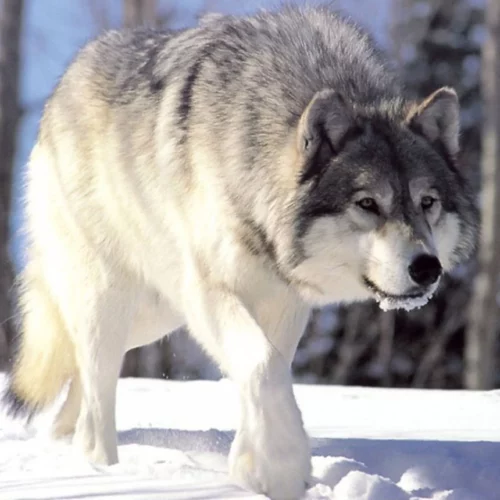
Wildlife officials confirm 6 wolf poisonings in northeastern Washington
The Washington Department of Fish and Wildlife is asking for the public’s help to find who poisoned six wolves in northeastern Washington. Continue Reading Wildlife officials confirm 6 wolf poisonings in northeastern Washington
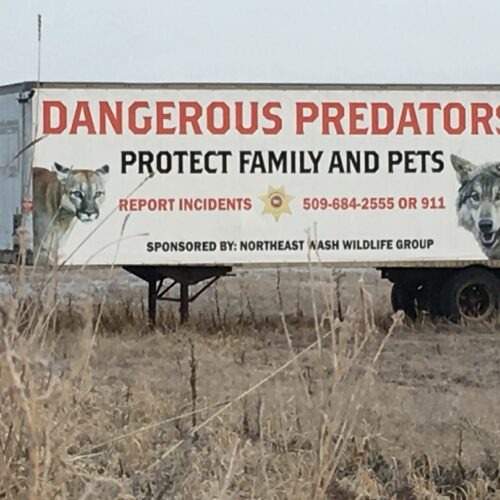
A Wolf In Northeastern Washington Was Killed Illegally. Here’s Why It’s A Big Deal
Wolf poachers go mostly undiscovered — but that hasn’t stopped nonprofit organizations from putting up significant cash rewards for information about these incidents. While rewards generally don’t lead to convictions, Defenders of Wildlife’s Gwen Dobbs says reward offers in cases of wildlife poaching can help raise public awareness, “hopefully serving as a deterrent against potential future incidents, even if a reward does not directly lead to a conviction.” Continue Reading A Wolf In Northeastern Washington Was Killed Illegally. Here’s Why It’s A Big Deal
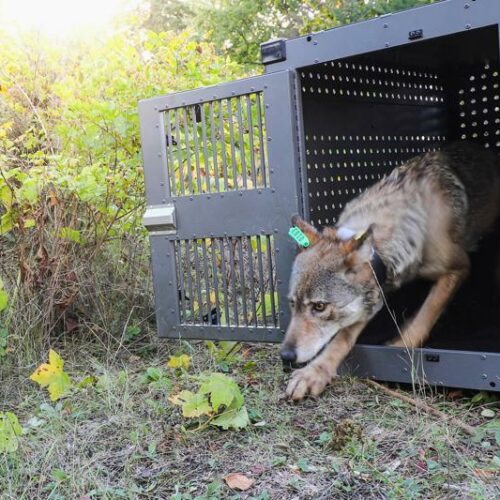
Scientists Urge Federal Government To Restore Protections For Gray Wolves
A group of scientists urged the Biden administration Thursday to restore legal protections for gray wolves, saying their removal earlier this year was premature and that states are allowing too many of the animals to be killed. Continue Reading Scientists Urge Federal Government To Restore Protections For Gray Wolves



